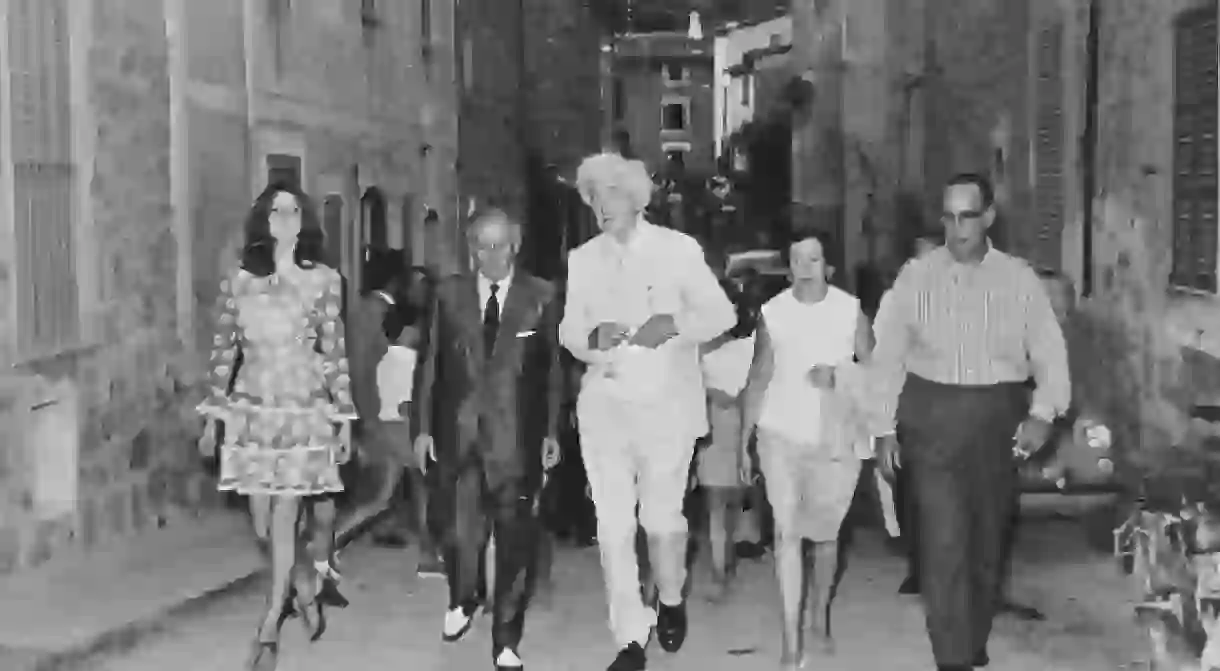What Robert Graves Taught Us About War

The poet and writer Robert Graves actively served on the front-line of World War I’s bloody duration. His experiences of war forged the basis for his literary career extending throughout much of his subsequent works. Forever a realist, Graves’ depiction of war through his poetry, biography and prose works offer an apposite insight and evaluation of the true outcome of war’s destructive violence. A writer we can learn a lot from in today’s world political climate.

Goodbye To All That
There’s something powerfully succinct in the emphasis placed on the word ‘That’ in the title to Robert Graves’ great autobiography’ Goodbye To All That.’ You would be forgiven for imagining Graves’ power of economy would serve rather well within the 140 characters afforded to a Twitter user. ‘That’ of course is partly intentionally ambiguous – a demeaningly cumbersome emphasis not worthy of refinement, but it is also diametrically all encompassing. ‘That’; referring to everything Graves will write about in his spellbinding memoir before leaving us for the sunnier more tranquil-paced climes of Mallorca, an emotionally lighter man.
Graves’ ‘bitter leave taking of England’ first appeared in 1929, with its author aged just 34. It was written by a man who, through his active involvement in World War 1, had found his early poetic subjectand also the cathartic prose which formed the large part of his autobiography. Born on the 24th July 1895, Robert Von Ranke Graves’ age at the start of war in 1914 was ripe for heady, action-hungry enlistment. Expecting a quick war lasting no longer than a few months, Graves’ attitude was typical of young men at the time. His eventual long and distinguished service, throughout the four years of war, saw him serve as both an officer and eventually as a Captain in the highly-regarded Royal Welch Fusiliers. Stepping out of the Western Front as a highly respected soldier, but a much depleted soul — by the time of his eventual discharge from the army — his experience of front-line warfare was second to none. In a letter from Graves to Edward Marsh intervening to save his good friend Siegfried Sassoon from Court Martial, over his rebellious open lettered anti-war statement near the end of the war, Graves offered: ‘you can be quite assured that I’m a sound militarist in action however much of a pacifist in thought.’

Brotherhood Of Man
It was these years serving on the front-line that the battle hardened and at times, foolishly brave young soldiers would idealistically evolve. Spearheading the the poetry of graphic realism that we are now accustomed to reading from World War 1 poets, such as Sassoon and Wilfred Owen, Graves depicted war as a highly unromantic and immoral arena of cheap, undignified bloodshed. More to the point, Graves taught us that war is good for nothing, it serves no reason and more importantly, that there can be no justification for it. As a soldier of great experience, it is Graves’s dissection within Goodbye To All That as to the degree of stages of motivation for the fighting man which is so educational. As his letter to Marsh shows, Graves — as was the case of many of his comrades — took great pride in his abilities employed within the arena of warfare, whilst conversely having no truck for the political objectives of their being there. Graves’ motivation for killing and risking being killed are prioritised mainly with that of regimental pride and wanting to serve and protect your closest brothers-in-arms. He cites patriotism and religion as having zero force amongst the fighting man, claiming patriotism as ‘too remote a sentiment’ and that any new zealously patriotic new recruit would be laughed out of the trenches, or soon be seeing the error of their ways.
Amid the death and destruction Graves describes the insanity of officers being ferried in chauffeur driven Rolls Royces through the front line balking at slovenly troops, their weekly receipt of Fortnum and Mason food hampers, and the reserve billets in Bethune, Northern France where he was stationed in a beautiful Louis 16th chateau finding the bedroom mattress too soft to sleep on and preferring the floor. This was all in addition to the ridiculousness of the cataclysmic loss off young life he witnessed around him on a daily basis.

T.E Lawrence And Today’s War
Robert Graves met T.E. Lawrence at Cambridge University after the war, whilst Lawrence was putting together his autobiographical masterpiece, The Seven Pillars Of Wisdom. Later immortalised in film and folklore as ‘Lawrence of Arabia’ it was at Cambridge, shortly after the end of the war, that Lawrence and Graves struck up a close friendship. Graves soon wrote Lawrence and the Arabs, a biography of Lawrence which served in some part to ignite the legend and fame of the man, once the dust had settled on his post war actions. In doing so, it also helped to highlight one of the most current dilemmas of modern warfare we face today.
It is no coincidence that Graves and Lawrence forged a brief but strong bond. Lawrence had been left high and dry after the war by the Sykes-Picot agreement. This secretly-negotiated, divisive agreement effectively caused the last 100 years of Middle-Eastern turmoil with its partitioning of the entire Middle-East by France and Great Britain (with Russian assent) after performing a spectacular volte-face on their original promises of a post-war free Arab state. In his introduction to The Seven Pillars, Lawrence identifies the mass of sensitivities at play in the Middle-Eastern territories and the consequences of the West’s meddling. In fact, it is almost beguiling that the book exists today as a defined guide to avoiding the political blunders of the last 100 years. Lawrence, with the help of Graves was instrumental in attempting to help us understand, respect and navigate the incendiary political events occurring as we speak.













